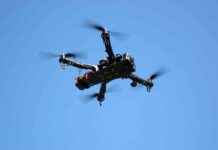Walmart Pilots Body Cameras for Store Employees Amid Safety Concerns
Walmart, the retail giant known for its expansive reach and diverse workforce, has recently made headlines for its decision to equip some of its store-level employees with body cameras as part of a pilot program in select U.S. locations. This move comes as a response to concerns about employee safety and potential conflicts in the workplace, especially during the busy holiday shopping season.
The initiative, which is still in its early stages, aims to test the effectiveness of body cameras in enhancing security and promoting a safer environment for both employees and customers. While the exact number of stores currently utilizing these devices remains undisclosed, reports from witnesses and online photos suggest that some Walmart locations have already implemented the use of body-worn cameras, with signs at entry points alerting shoppers to their presence.
Employee Safety at the Forefront
According to a spokesperson from Walmart, the decision to introduce body cameras is part of the company’s ongoing efforts to explore new and innovative security technologies commonly used in the retail industry. While the primary focus of the program is on worker safety rather than loss prevention, concerns have been raised about the potential impact of these devices on employee interactions and overall workplace dynamics.
Expert Perspectives on Body Camera Use
David Johnston, vice president of asset protection and retail operations for the National Retail Federation, shared a contrasting view, stating that retailers have reported a decrease in conflicts when body cameras are present due to the awareness of being recorded. He emphasized that the visual reminder of being monitored can act as a deterrent and influence behavior in a positive direction.
Employee Concerns and Call for Training
Despite differing opinions on the effectiveness of body cameras, concerns have been raised by worker advocacy groups such as the Retail, Wholesale and Department Store Union and United for Respect. These organizations emphasize the importance of proper training for employees in deescalation techniques and handling hostile situations, rather than relying solely on surveillance technology.
Bianca Agustin, co-executive director of United for Respect, highlighted the need for comprehensive training alongside the use of body cameras, emphasizing that cameras alone are not a substitute for ensuring employee safety and well-being in the workplace.
Employee Experiences and Personal Insights
As discussions around the implications of body cameras continue to unfold, personal stories from former retail employees shed light on the complexities of workplace safety. A former mall employee, who chose to remain anonymous, shared their experiences of facing threats and violence while working in retail, questioning the effectiveness of body cameras in such intense scenarios.
The individual expressed skepticism about the impact of cameras on deescalating conflicts, emphasizing the need for additional support measures, such as police presence, to address safety concerns effectively.
In conclusion, Walmart’s pilot program with body cameras reflects a broader trend in the retail industry towards utilizing technology for security purposes. As the debate over the implications of surveillance continues, the focus remains on finding a balance between enhancing safety measures and addressing the underlying challenges faced by employees in the retail sector.



















